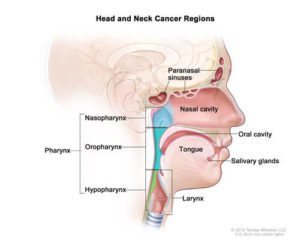After radiation treatment, the HPV throat cancer patient has to learn how to eat again.
Transitioning from a purely liquid diet to solid foods is a gradual process for several reasons.
Difficulty Swallowing
Damaged salivary glands demand “wet” foods such as saucy dishes.
An ordinary piece of dry toast, for example, will be almost impossible to swallow. Recommendations for difficulty swallowing.
More information about swallowing after radiation treatment.
Taste and Smell
Taste is now altered. Six months after treatment, my husband estimated he had about 70% of his original taste back. Two years later, most foods taste close to normal. Foods not only taste differently, they smell differently and mostly, that’s not a good thing. Spicy foods may not be tolerated at first as the throat’s interior continues to heal from treatment.
Here’s more information on dealing with changes in taste and smell.
Dry Mouth
Radiation to the throat and mouth area can result in dry mouth and thick saliva.
These side effects become part of the “new normal. Saliva is known to, among other benefits, aid digestion, neutralize gastric acids and cleanse the mouth. In Asian cultures, there are various exercises one can do to stimulate saliva. A Tibetan doctor instructed my husband to repeatedly press his tongue against his salivary glands to produce saliva and it worked for him. Learn more about dealing with dry mouth.
My friend, Jenean, recommended The Cancer Fighting Kitchen cookbook by Rebecca Katz. It offers nutritious recipes for all types of cancer patients.
It contains tips on how to flavor foods for cancer patients and was a good place for us to begin the “new normal” of cuisine.
You may also want to check out the Caregiving for Throat Cancer blog. Colleen DeLaney whose husband, John, is a recovering HPV throat cancer patient started this blog specifically for caregivers. The blog contains Colleen’s journey as a caregiver including recipe ideas such as the “1000-calorie shake.”


